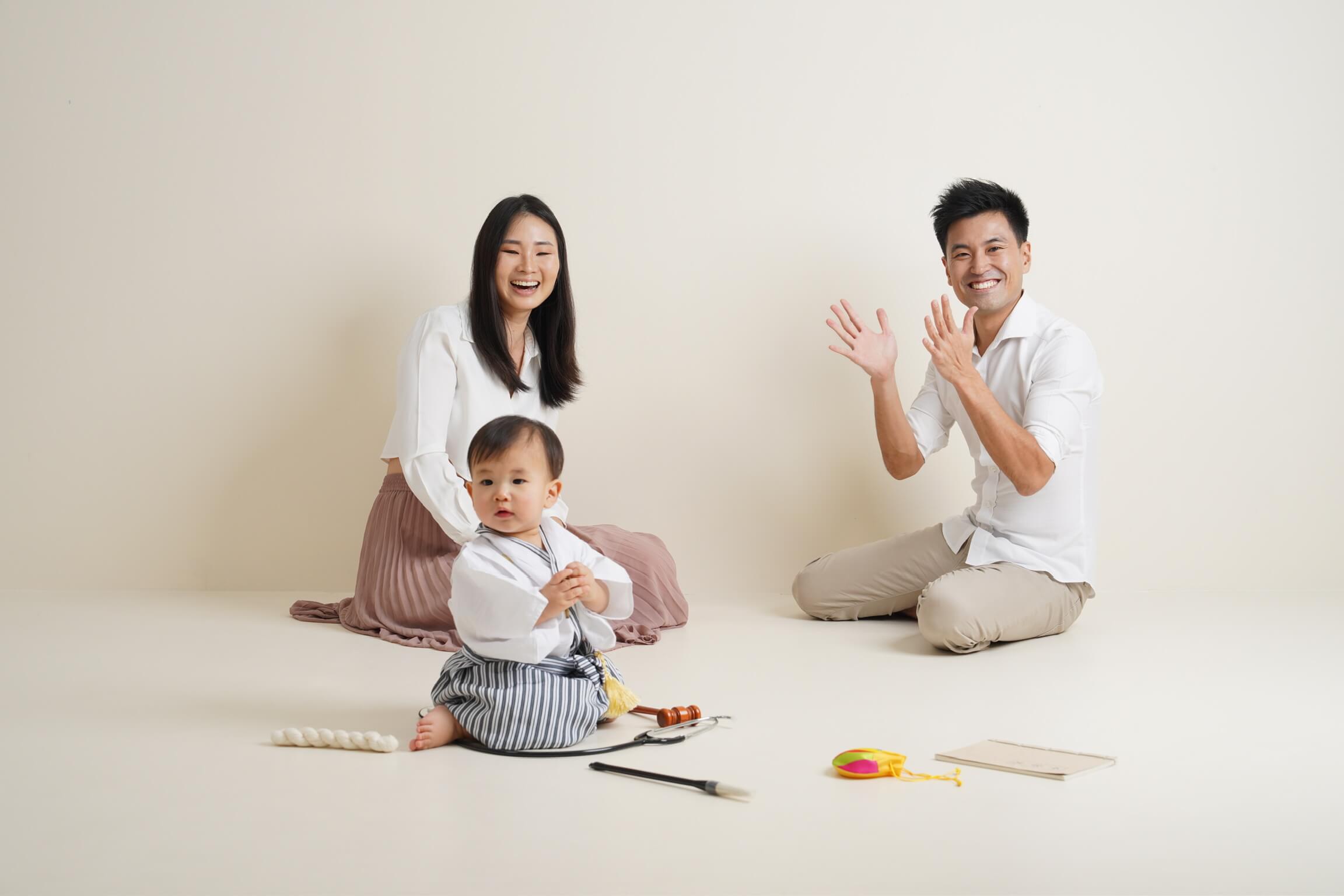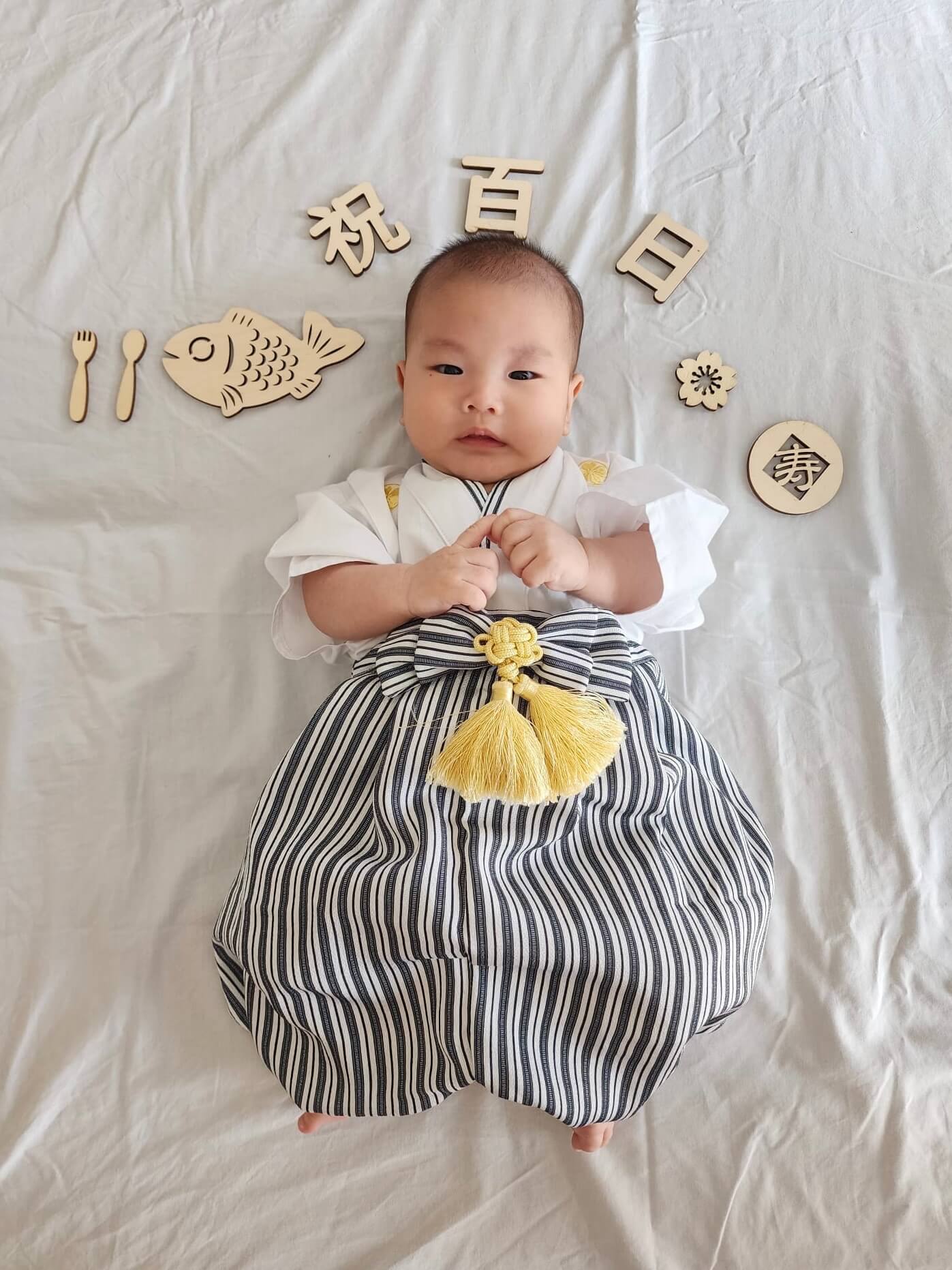Embracing Multicultural Parenting in Bangkok: A Third Culture Kid's Journey

By Jeannie Kim
Third culture kids (TCKs) are individuals who, before the age of 18, live abroad with their parents due to work or study commitments. This unique upbringing allows them to form connections with multiple cultures, although they may not feel a complete sense of belonging to any single one. The term TCK was coined by sociologists David and Betty Pollock in the 1970s. TCKs often navigate a blend of their parents' culture, the local culture where they live, and an amalgamation of their unique experiences. They are known for their adaptability, linguistic abilities, and cultural sensitivity, which often make them global citizens in an increasingly interconnected world.
My background
Born in Sydney, Australia, in 1987 to South Korean parents who immigrated in the early 1980s, I was immersed in Korean culture through the Korean community in Sydney, particularly the Korean Catholic church. My extended family, including grandparents, aunts, and uncles, also migrated, ensuring I grew up surrounded by Korean traditions. Fond memories of celebrating Korean holidays like Lunar New Year and the Harvest Festival at my grandparents' house, with the loud chatter of my aunts in the kitchen, the aroma of Korean dishes, and playing games with my cousins, are etched in my mind.
It wasn't until I was 12 that I realized my cultural differences, as my friends didn't celebrate these holidays or eat mandu-guk for New Year's. Despite this, my teenage years were filled with K-pop, K-dramas, and learning about the beauty and struggles of Korean life. My mother's stories of Korea's competitiveness and rigid class system highlighted why she sought a better life in Australia, a move I deeply admire. Negative experiences with Korean peers during school led me to form friendships outside the Korean community, causing me to struggle with my Korean identity. Today, I identify more strongly with my Australian heritage, speaking Korean mostly with my mother and embracing my Australian roots. On reflection, I wish I had a more balanced cultural identity, just like my husband, Ken.
Ken’s background
My husband Ken is culturally half-Japanese and half-Australian. His parents moved to Australia before he was born, and he was raised in Sydney. Unlike me, Ken’s extended family all lived in Japan, so to preserve Japanese culture, his parents were strict about speaking Japanese at home, and he attended Sydney Japanese School until he was eight. He frequently visited Japan to see his family and received Japanese tutoring until he was 18. Extraordinarily, Ken excelled in English as well and performed exceptionally well in high school. He has a great blend of both Australian and Japanese friends and has kept friendships from his primary school days. Ken also continues to maintain his Japanese reading skills by reading books in both Japanese and English, a tradition that we have already passed down to our son Kai.
Our move to Bangkok
Ken and I married in 2020 in Australia and soon started discussing how to raise our children in a way that embraced Australian, Japanese, and Korean cultures. Unexpectedly, Ken's work took us to Bangkok, adding Thai culture to the mix. With our 17-month-old son, Kai, we do our best to integrate these diverse cultures by:
- Teaching Kai to "say" sawadee-krap by putting his hands together in the traditional Thai greeting.
- Ken speaking Japanese and English to Kai, who is now able to understand some Japanese words.
- Visiting Japan with Kai. We introduced him to onsens and Japanese cuisine during our visits there, and he loves onsens!
- Celebrating major Korean and Japanese milestones, such as doljanchi (first birthday celebration) with traditional customs.
- Encouraging our parents to speak Japanese and Korean to Kai during video calls.
- Occasionally showing Kai Korean children's TV shows and Japanese manga.
- Reading the same books in their English, Japanese, and Korean versions.
Fostering a sense of belonging
Parental support is crucial for fostering a sense of belonging. According to Allen et al. (1), supportive parents provide academic and social support, open communication, and encouragement. This creates a sense of safety and acceptance for the child. Feeling a sense of belonging is essential for TCKs, who often live in transient communities where friendships may come and go. Regular family rituals and maintaining traditions from both parents' cultures help anchor a child in a secure identity.

Identity development
Teaching empathy and differentiating oneself from peers are vital for identity development. Research by Glick and Rose (2) shows that empathy aids in social relationships and competence. Bowen (3) emphasized the importance of differentiating oneself to understand and respect others' perspectives while maintaining one's own beliefs and autonomy. High differentiation is linked to better interpersonal relationships and resilience against peer pressure (4).
For Kai, we aim to nurture his ability to see the world from multiple perspectives, which will help him navigate different cultural contexts with ease. By celebrating Korean and Japanese holidays and exposing him to Thai traditions, we hope to cultivate a deep appreciation for his multicultural heritage.
Increasing self-efficacy
Parents should model self-efficacy to children. Self-efficacy refers to an individual's belief in their ability to succeed in specific situations or accomplish a task, and is fundamental to how people think, behave, and feel. Self-efficacy influences the choices we make, the effort we put into tasks, our persistence in the face of challenges, and our resilience to adversity. Children closely observe their parents' behaviors, and parents' successes and failures significantly shape their beliefs. Sharing personal experiences, praising effort, having belief in their ability to complete tasks, and using words of encouragement help build a child's self-efficacy. Increasing self-efficacy in children has been linked to lower levels of aggression, lower conduct issues in teenagers, and higher academic performance (5).
For instance, Ken and I often share stories with Kai about our challenges and how we overcame them, reinforcing the idea that persistence and effort are key to success. We celebrate his small achievements and encourage him to try new things, building his confidence in his abilities.
Providing emotional stability
Responsive and respectful parenting that is firm, consistent, and allows age-appropriate decision-making fosters emotional stability. Authoritative parenting leads to self-reliance, higher self-esteem, and academic success (6). By being both firm and flexible, allowing Kai to participate in decision-making when appropriate, and explaining behavioral rules and expectations, we create a stable environment for him to thrive.
Our goal is to be warm, loving, and emotionally supportive in our interactions with Kai. This approach not only helps him feel secure but also encourages him to develop into a self-reliant and self-controlled individual. Studies have shown that children who experience authoritative parenting tend to have higher self-esteem, internalized moral standards, and academic success.
What research reveals about TCKs
Psychologically, TCKs are more open-minded, respectful, and flexible than their local peers. They are also more interested in learning languages, traveling, and seeking futures abroad. A systematic review by Jones and their colleagues (7) revealed that TCKs feel closer to their families than other children. However, TCKs can suffer from repatriation anxiety, which is worrying about moving back to the TCKs’ parent’s home country. The strong sense of family cohesion that many TCKs have plays a vital role in helping them to adjust to repatriations.
By maintaining strong family bonds and supporting Kai's emotional and psychological needs, we aim to mitigate potential challenges associated with being a TCK. Regular communication with our extended family and involving them in Kai's life helps reinforce his sense of family and cultural identity.
Final thoughts
Raising a TCK in Bangkok is an ongoing journey. We aim to provide him with a strong sense of belonging, a well-rounded identity, self-efficacy, and emotional stability. By embracing multiple cultures, we hope to prepare Kai for a future where he can navigate and appreciate the diverse world he lives in.
Multicultural parenting requires a delicate balance of preserving cultural heritage while adapting to new environments. It involves fostering a deep sense of belonging and identity, modeling self-efficacy, and providing emotional stability. As we continue this journey, we remain committed to nurturing Kai's appreciation for his rich cultural tapestry, equipping him with the tools to thrive in a multicultural world.
References
- Allen, K., Kern, ML., Vella-Brodrick, D. et al. (2018) What Schools Need to Know About Fostering School Belonging: a Meta-analysis. Educ Psychol Rev 30, 1–34. doi.org/10.1007/s10648-016-9389-8
- Glick, GC. & Rose, AJ. (2011) Prospective associations between friendship adjustment and social strategies: Friendship as a context for building social skills. Developmental Psychology, 47(4), 1117–1132. doi.org/10.1037/a0023277
- Bowen, M. (1978) Family therapy in clinical practice. New York, NY: Library of Congress Catalog, Copyright by J. Aronson; 1978.
- Ragelienė, T. (2016) Links of Adolescents Identity Development and Relationship with Peers: A Systematic Literature Review. Journal of the Canadian Academy of Child and Adolescent Psychiatry = Journal de l'Academiecanadienne de psychiatrie de l'enfant et de l'adolescent, 25(2), 97–105.
- Albanese, AM., Russo, GR., Geller, PA. (2019) The role of parental self-efficacy in parent and child well-being: A systematic review of associated outcomes. Child Care Health Dev. 45:333–363. doi.org/10.1111/cch.12661
- See ref. 5
- Jones, EM., Reed, M., Gaab, J., Ooi, YP. (2022) Adjustment in third culture kids: A systematic review of literature. Frontiers in Psychology, 30, 1–29. doi.org/10.3389/fpsyg.2022.939044
About the Author
Jeannie is currently pursuing an honors degree in psychology with a focus on clinical applications. Prior to this, she was an acupuncturist specializing in fertility, stress management, and pain relief in Sydney for 12 years. With her unique blend of Eastern and Western therapeutic approaches and maternal perspective, as feature writer, Jeannie promises a valuable contribution to BAMBI Magazine.
